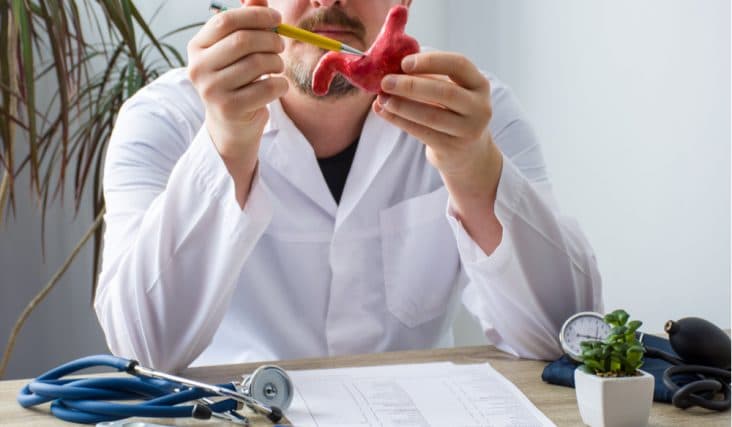If you are advised by your primary care physician/GP to make an appointment with a specialist doctor at a gastrointestinal clinic, chances are that you’re making an appointment to speak to a gastroenterologist. Gastroenterologists are specialists who treat conditions and diseases that affect your digestive system.
While you may wonder if there’s something wrong with you, visiting a gastroenterologist doesn’t necessarily mean you’re suffering from a serious condition. Sometimes, all you may need is a routine checkup.
If you are experiencing digestive issues, preparing for your appointment can make diagnosis and treatment much more efficient. It will help your doctor try and detect the cause of your digestive issue and provide personalised recommendations for treatment.
Preparation before your visit
Journal your symptoms and personal health history
What you can expect at your first appointment at a gastrointestinal clinic will really depend on the health issues you may be experiencing. You must be prepared with the history of your condition including previous treatment, as these are routine questions a specialist will ask you. Guesswork will make it difficult for a gastroenterologist to make an accurate diagnosis.
For most digestive conditions and disorders, early diagnosis can play a key role in the effective management of your symptoms and recovery. Therefore, before your first appointment, make note of your symptoms and other specifics such as:
- How long you’ve been experiencing discomfort or pain
- Areas most affected by the most pain and discomfort
- What effect your diet has on your pain or symptoms
- Recent changes in your life
- Recent changes in your bowel movements
- Rapid or unexplained weight loss in the past year
- Other conditions you’ve been diagnosed with and the medication you may be taking for these
- Other changes in your health you’ve noticed
- Family history of any digestive conditions
Documents you need to take
On the day of your appointment, remember to take your GP referral. Certain gastrointestinal clinics may request you to send it via email or through an online form. Make sure you also take your medicare card and if applicable, your health fund card, pension card or veteran’s card (DVA).
You may also want to take any recent medical records relevant to the consultation – your gastroenterologist may find them useful in determining a diagnosis. Also, try and arrive at your appointment early, as most clinics request you to fill in paperwork before seeing a specialist.
Physical examination
Your doctor may want to do a physical examination as it may help in detecting a cause for your symptoms.
Your doctor may even try to detect bowel sounds, masses or tenderness. They may ask you to take deep breaths or cough during this examination.
Based on the information gathered during your physical examination, your doctor may request other diagnostic tests.
Request more information on what to expect during your first visit to a gastrointestinal clinic
There are plenty of misconceptions about visiting a gastrointestinal clinic. Many assume they have a serious issue if they are asked to visit a specialist. Others take it lightly and miss out on recovering more easily from their health issues.
While your first appointment at a gastrointestinal clinic may require more preparation compared to a visit to a primary care physician, it’s nothing to worry about if you know what to expect and what is expected of you.
Contact a team of expert gastroenterologists for more information on what you need to know before you arrive for your first consultation at a gastrointestinal clinic.
Please note, however, that this is an overview of what you can expect when you visit a gastrointestinal clinic under regular conditions. Due to COVID-19, many clinics, including ours, have revised safety protocols to safeguard the health and safety of patients and staff. Please check our website to see how our team is taking precautions at this time.

